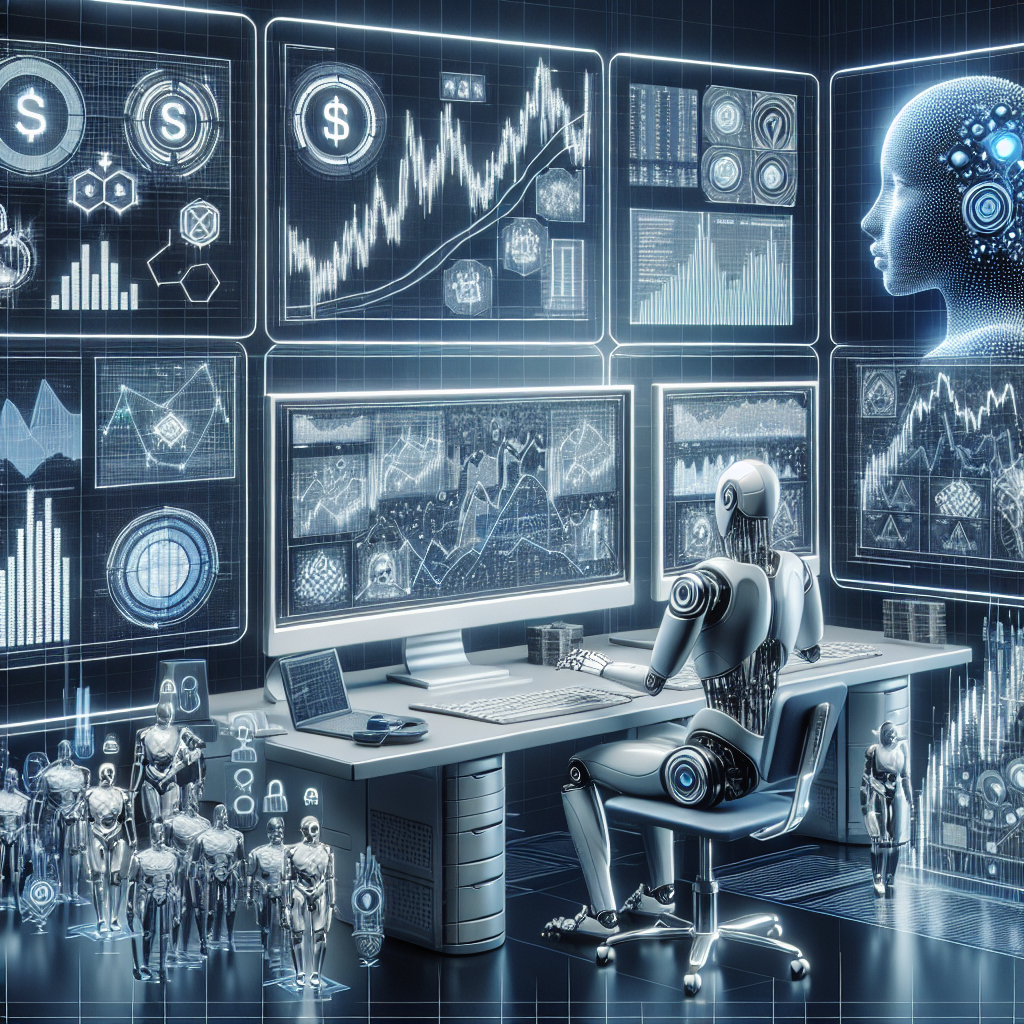The Future of AI in Financial Trading
Artificial Intelligence (AI) has been making significant advancements in various industries, and the financial trading sector is no exception. AI has the potential to revolutionize the way trading is done, making it faster, more efficient, and more profitable. From algorithmic trading to predictive analytics, AI is changing the game for traders around the world. In this article, we will explore the future of AI in financial trading and how it is reshaping the industry.
AI in Financial Trading
AI has already made significant inroads in financial trading, with many hedge funds and trading firms using AI algorithms to make trading decisions. These algorithms are capable of analyzing vast amounts of data in real-time, making predictions based on historical patterns, and executing trades with precision and speed that human traders simply cannot match. This has led to increased automation in trading, with many firms relying on AI to make the majority of their trading decisions.
One of the key advantages of AI in financial trading is its ability to process and analyze massive amounts of data quickly and accurately. This allows traders to identify patterns and trends that would be nearly impossible for a human to spot. AI algorithms can also adapt to changing market conditions in real-time, allowing traders to make decisions based on the most up-to-date information available.
Another advantage of AI in financial trading is its ability to remove human bias from trading decisions. Human traders are prone to emotions such as fear and greed, which can lead to irrational decision-making. AI algorithms, on the other hand, are not influenced by emotions and make decisions based solely on data and logic. This can lead to more consistent and profitable trading strategies.
The Future of AI in Financial Trading
The future of AI in financial trading looks promising, with continued advancements in AI technology and its application in trading. One area where AI is expected to have a significant impact is in the development of more sophisticated trading algorithms. These algorithms will be able to analyze even larger amounts of data, identify more complex patterns and trends, and make even more accurate predictions. This will enable traders to generate higher returns and reduce risk in their trading strategies.
Another area where AI is expected to make a big impact is in the development of personalized trading strategies. AI algorithms can analyze an individual trader’s trading history, risk tolerance, and investment goals to develop a trading strategy that is tailored to their specific needs. This can help traders optimize their returns and minimize their risk, leading to more successful trading outcomes.
AI is also expected to play a big role in the development of more efficient trading platforms. AI algorithms can help streamline the trading process, making it faster and more cost-effective. This can lead to lower trading costs for traders and increased liquidity in the markets. AI-powered trading platforms can also provide traders with real-time market insights and personalized trading recommendations, helping them make more informed trading decisions.
FAQs
Q: How is AI being used in financial trading?
A: AI is being used in financial trading in a variety of ways, including algorithmic trading, predictive analytics, and personalized trading strategies. AI algorithms can analyze vast amounts of data in real-time, identify patterns and trends, and make trading decisions with speed and precision.
Q: What are the advantages of AI in financial trading?
A: Some of the advantages of AI in financial trading include its ability to process and analyze large amounts of data quickly and accurately, its ability to remove human bias from trading decisions, and its potential to generate higher returns and reduce risk in trading strategies.
Q: What is the future of AI in financial trading?
A: The future of AI in financial trading looks promising, with continued advancements in AI technology and its application in trading. AI is expected to lead to the development of more sophisticated trading algorithms, personalized trading strategies, and more efficient trading platforms.
In conclusion, AI is poised to transform the financial trading industry in the coming years. With its ability to analyze vast amounts of data, make predictions based on historical patterns, and execute trades with speed and precision, AI is changing the way trading is done. As AI technology continues to advance, we can expect to see even more innovative applications of AI in financial trading, leading to more profitable and efficient trading strategies.

